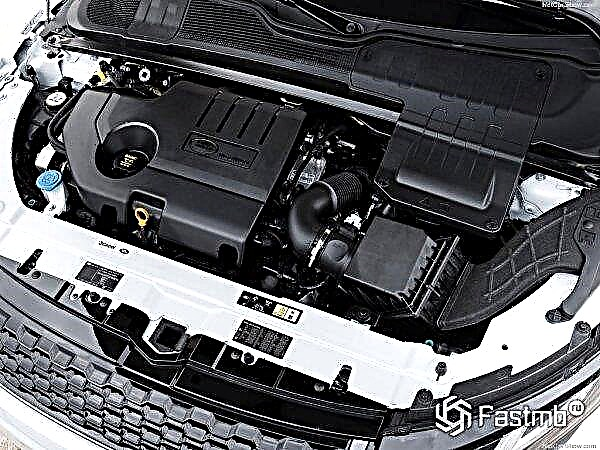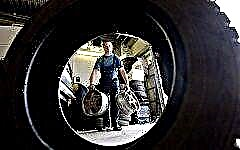

The content of the article:
- Blat in Soviet style
- Technical illiteracy
- Protection against fraudsters at service stations
- Will there be trust in car services
Phobias are different: fear of insects, heights, confined space. For the new type of fear, there is no official name yet, because it concerns the fear of car owners visiting car services.
This is exactly the unexpected conclusion made by the analysts of the agency "Autostat" at the end of 2016. More than half of all surveyed drivers are afraid of car services, justifying this with the following reasons:
- imposing unnecessary additional services;
- use of used or simply low-quality spare parts;
- low qualification of craftsmen;
- the duration of the repair;
- the likelihood of damage to the car;
- incomprehensible technical terminology.
The same respondents who do not experience warnings to the service station admitted that they are trying to contact trusted or familiar craftsmen.
Blat in Soviet style

Experts believe that some of this mistrust of car owners goes back to Soviet times. Now each brand has a specialized car service for servicing its products, gives a guarantee, provides original spare parts. And just a few decades ago, any car was repaired either independently, or in any workshop with specialist station wagons.
Such services appeared in 1973 overnight, like mushrooms after rain. The Togliatinsky car manufacturer has been actively selling its products for 3 years already, and such popular Zhiguli gradually began to junk. In addition, engineers altered the Italian prototype - Fiat-124 - to fit the conditions and technical capabilities of Soviet realities, which, unfortunately, significantly reduced the quality of the car produced.
Therefore, services were required urgently, in large quantities and throughout the country - 35 largest brand centers and more than 500 small branches. It was planned in each major service to service up to fifty cars daily, but the idea remained on paper. Like everything else in the Soviet Union, service stations also fell into the deficit category due to the lack of the proper amount of necessary spare parts.
From here the "legs" of the crony grew up: the service masters became a special caste that could get the necessary units or leave them without a means of transportation for a long time.
The directors of the service station stood on the same level with the management of shops or restaurants, that is, they were "gods" in the eyes of the common population.
To advance in the queue for repairs, it took a lot of effort and tricks, to find acquaintances of an acquaintance with connections, and be sure to give bribes everywhere, making the cost of servicing the car endless.
This situation was observed in the country right up to its very collapse, and the absolute impunity and lack of control led to an ever greater decline in the quality of both the work itself and the supplied parts. Thus, the "golden" repair did not guarantee a positive result and long-term operation of the car.
Technical illiteracy

Unfortunately, a rare driver has sufficient knowledge of the structure of his car. But an experienced mechanic at first glance recognizes the level of literacy of the car owner and immediately forms the appropriate manner of communication.
Most of all goes to women, towards whom the masters, by definition, have a prejudiced attitude. Naturally, they do not know what is broken, they cannot explain the nature of the noise or knock, they are perplexed by incomprehensible terms. Unclean workers seize the opportunity to fog up and maximize their bill for their services by imposing numerous unnecessary jobs. Therefore, about 77% of motorists are afraid of the prospect of visiting a car service, expecting in advance disrespectful treatment and "divorce" for money.
But even male drivers admit that sometimes they have to pay unreasonably large sums of money. The most common methods of deceiving car owners are quite simple:
- charging fees for work that was not actually carried out;
- charging a fee for a new part, when a used one is actually installed;
- use of non-original spare parts and low-quality consumables;
- replacement of good units in the car with used ones (in fact - theft).
Protection against fraudsters at service stations

To stop being afraid of visiting a car service, you need to know about all the underwater currents that can be expected there. Even if the driver himself does not understand the internal structure of the car, he can attract a more experienced person, the main thing is to know what to look for:
Replacement of oil pump service station
The simplest operation is when the craftsmen simulate oil change. Instead of completely draining the used oil and refilling it with new fluid, some technicians simply add a little fresh oil to the required level and install a new filter. Thus, if a luxury car is supplied for service, whose consumables are of a very high cost, the service employees can put a very good sum in their pockets.
The client, in addition to paying for the unfulfilled work, will receive additional problems with his vehicle. Old oil will no longer cope with its task, parts and assemblies will wear out faster and cause more and more breakdowns. If the fact of filling the waste fluid is not detected in a timely manner, the car owner faces much higher costs for engine repairs.
Fraud can be detected by personally checking the oil level using the dipstick. If it is covered with dirt or soot, this will indicate that the fluid has not been changed.
Anti-corrosion treatment
In this case, during the implementation of anti-corrosion treatment of the bottom, a low-quality, cheap composition may be used, or the technology of its application may be violated. To save personal time, the employee may not prepare the bottom for coating, and also not apply the composition to the hidden cavities of the body, where moisture accumulates as much as possible.
You need to catch the master only by being personally present during the work in order to control the thoroughness of the surface treatment.
Candles and wires
A distinctive feature of unreliable car services is the insistence on replacing candles and high-voltage wires for any unstable motor operation. In practice, the problem can often be solved by simple adjustment of the gap. This is just a classic example of imposing completely unnecessary work that will cost an additional amount.
Transmission
Inexperienced motorists are very afraid of any problem with the gearbox, and the service staff will gladly inflate it to tragic proportions. For example, if you throw a few metal shavings during an oil change, then you can tell the owner with horror about the destruction of parts that require major repairs. Naturally, the driver pays for the "phantom" repair, and the foreman earns a good "tip".
Experienced motorists with technical literacy cannot be fooled by such shenanigans, while the rest should follow a few tips:
- Before going to the service, you should try to solve the problem in other ways - consult with knowledgeable people, familiarize yourself with the prices for service station services, ask for advice from colleagues at auto forums.
- Do not demonstrate your incompetence in matters of car operation in front of the service staff, do not talk about unsuccessful attempts to figure it out on your own.
- If the breakdown is not too serious and there is an opportunity to wait for the repair, it is better not to go to the first service that comes across, but to ask friends or colleagues about already proven service stations with good craftsmen.
- If the repair will require several days, it is better during this period to look several times without warning into the service to see if at least some work has been carried out during all this time.
- The master must clearly demonstrate the result of his work, having carefully checked the functioning of all systems with the owner.
- If any chemicals were applied to the car or liquids were poured, you can ask to show the packaging of these products to ensure their quality.
- Specialists must provide documents for the entire list of work performed on the stationery of the service station, with the signature of the master and the seal of the enterprise.
Will there be trust in car services

Research shows that motorists all over the world find going to a workshop not the most enjoyable experience. The very fact of contacting this organization suggests some kind of problems with the car, which already sets up negative expectations of hassle and financial costs.
In Europe and America, they are already trying to increase the attractiveness of car services by introducing the visualization method. Its essence lies in the fact that specialists would visually show the owner the detected malfunctions and explain the planned ways of solving them. It is expected that the introduction of such technologies will provide more confidence in the garages.











